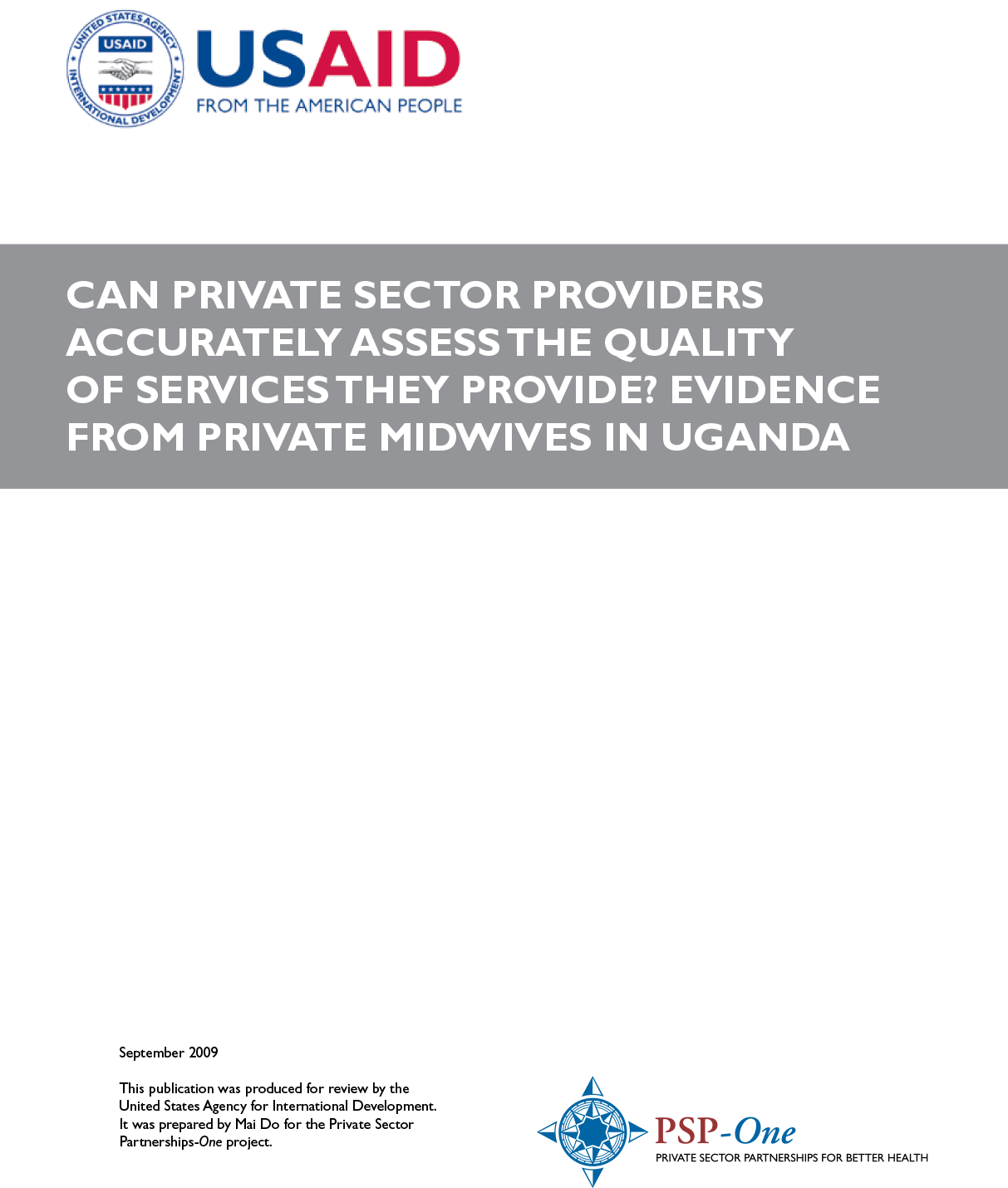
Resource Library
Can Private Sector Providers Accurately Assess the Quality of Services They Provide? Evidence from Private Midwives in Uganda
Self-assessment tools have become increasingly important for quality improvement in settings where external supervision and evaluation of the quality of care may not always be feasible. The evidence has been mixed regarding the level of agreement between health care providers' self-assessment of quality and the actual quality of services observed. This paper examines this level of agreement for private midwives who provide reproductive health services in Uganda, including family planning (FP), antenatal care (ANC), and postnatal care (PNC). Self-assessment was part of a quality improvement package implemented by the Private Sector Partnerships-One (PSP-One) project, introduced to help midwives identify problems of service delivery and to work on solutions. The package comprises the following elements: a form to review service statistics; a provider self-assessment tool; a linked action plan to help solve issues identified by the self-assessment; and a tool to enable the supervisor to find solutions to problems identified by the provider. The self-assessment tool is meant to be used by private practitioners in independent practice for quality assurance that does not rely on external supervision. A total of 248 midwives were interviewed about the quality of their services before and after the intervention took place; some of them received training on the self-assessment tool while others did not. The actual quality of services was observed with 772 and 776 clients of the same midwives before and after the intervention. The study found a moderate level of agreement between midwives' self-assessment of the quality and the observed quality of ANC services, while no statistically significant agreement was found with FP and PNC services. In addition, there was evidence that the training on the self-assessment tool improved the agreement between the midwives' self-assessment and the actual quality observed. The study underlines the potential of a provider's self-assessment tool for quality of care assessment, as well as quality improvement, in the private sector in developing country settings. Further research is needed to identify the types of services that may be best assessed by such a tool.
Resource Type : Report
Country : Uganda
Year : 2009-10-30T13:30:00
Language : English
Project : SHOPS


